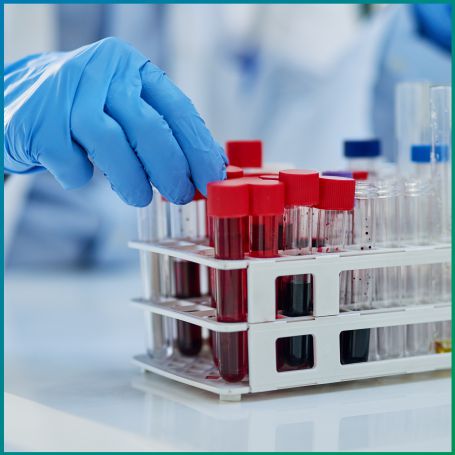
The Brucella IgG and IgM tests are serological tests used to detect antibodies produced by the body in response to a Brucella infection.


Brucellosis, also known as undulant fever, is a bacterial infection caused by the Brucella species. This disease primarily affects animals such as cattle, goats, and sheep, but humans can also become infected, often through direct contact with animals, their products, or contaminated food. Brucellosis can present with a variety of symptoms, making it difficult to diagnose without proper testing. The Brucella IgG and IgM test is an important diagnostic tool that helps detect brucellosis in individuals who may have been exposed to the bacteria.
The Brucella IgG and IgM tests are typically done through a blood sample. A healthcare professional will draw a small amount of blood, which is then sent to a laboratory for analysis. The Pathology laboratory will test the blood for the presence of Brucella-specific antibodies. If the levels of IgM and/or IgG antibodies are elevated, it suggests that the individual may have been infected with Brucella.
While these tests can help in diagnosing brucellosis, they are not always definitive on their own. In some cases, false positives or negatives can occur, so they are often used alongside other diagnostic methods such as culture tests, PCR (Polymerase Chain Reaction) tests, and clinical evaluation to confirm the diagnosis.
The results of the Brucella IgG and IgM tests are typically reported as titers, which indicate the concentration of antibodies present in the blood. A higher titer generally indicates a stronger immune response, which may suggest a recent or past infection. The interpretation of these results can vary depending on the context:
1] Positive IgM with Negative IgG: This likely indicates an acute or recent Brucella infection, as IgM is the first antibody to appear.
2] Positive IgG with Negative IgM: This could suggest a past or resolved infection, indicating that the person was exposed to Brucella in the past and developed immunity.
3] Positive IgM and IgG: This could indicate an ongoing or recent infection, with both types of antibodies present.
4] Negative Results: If neither IgG nor IgM antibodies are detected, it may suggest that the person has not been exposed to Brucella or is in the early stages of infection before antibodies have developed. However, it’s important to note that in some cases, especially with early-stage infections, the test may not detect antibodies yet.
Choosing Diagnopein Diagnostic Centre in Pune for your Brucella IgG and IgM test ensures you receive accurate, reliable, and timely results in a hassle-free manner. With state-of-the-art laboratories and skilled healthcare professionals, Diagnopein prioritizes precision in testing and adheres to strict quality control measures. We offer a convenient home collection service, bringing the test to your doorstep for added comfort and ease. Our affordable pricing is transparent, with no hidden fees, and we provide fast turnaround times for quick access to your results. Additionally, our team offers expert guidance and consultation, helping you understand your test results and next steps. Trusted by thousands of satisfied customers, Diagnopein is committed to delivering exceptional healthcare services with a focus on patient care and convenience. Whether you’re seeking early diagnosis or just peace of mind, Diagnopein is the right choice for your Brucella testing needs.
The blood collection process is quick and generally painless, though some may feel a slight discomfort during the needle insertion.
A blood sample is collected, typically through a simple vein draw, and sent to a lab for antibody testing.
This test helps identify recent or past Brucella infections, especially in people with symptoms like fever, joint pain, or those exposed to animals or unpasteurized products.
People with symptoms of brucellosis, those who work with animals, or individuals who have traveled to regions where brucellosis is common.